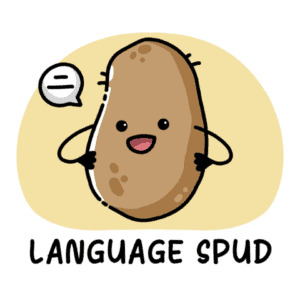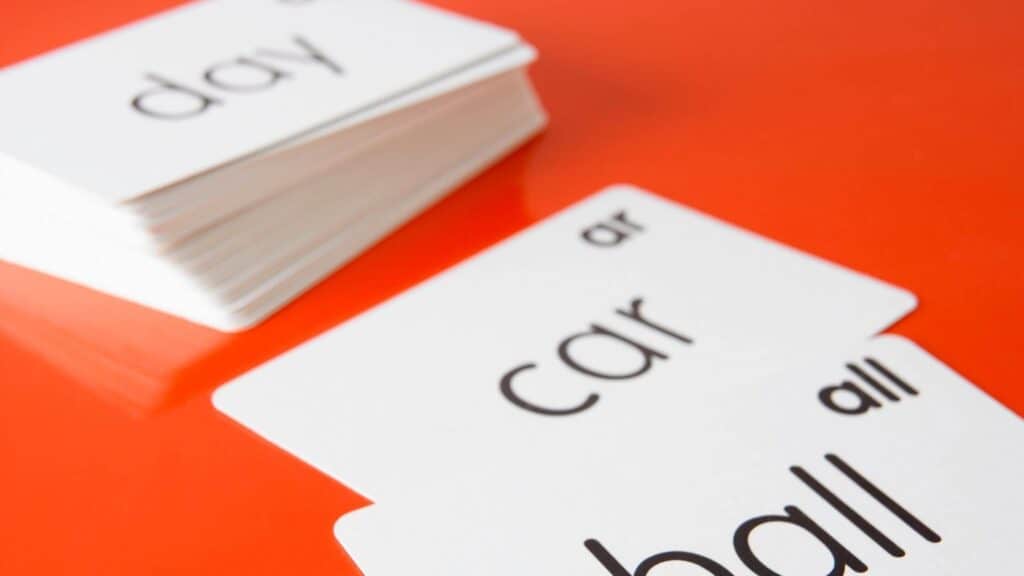
Flashcards.
These bad boys have become a point of contention among language learners over the years, and many a language learning message board are packed with keyboard warriors trading blows over their perceived effectiveness.
In the old days before phone apps and in-depth psychological studies to improve memory function, flashcards with spaced repetition software weren’t a thing at all. The only way you were learning a language back in the day was by memorising a dictionary, having a bilingual parent, or being electrocuted.
These days, things are different, and there is an insane number of tools with the goal of helping language learners learn faster – flashcards apps with spaced repetition software being one of them.
Most language learners (including myself) will utilise or will have utilised flashcards with SRS at some point as part of their studies, but that doesn’t mean they’re one of the best ways to learn languages.
Although flashcards are a useful tool for total newbie language learners to learn basic vocabulary, you’ll quickly realise as you move to the high beginner/lower intermediate level that comprehensible input is the key to language progression.
Let’s take a closer look at why this is, and what alternative study method blows flashcards out of the water when it comes to memorising new language.
- What are flashcards?
- What’s SRS?
- Flashcard learning methods
- Flashcard pros and cons
- When should I use single world flashcards?
- Sentence mining
- Alternative memorisation techniques
- Summary
What are flashcards?
A ‘flashcard’ is typically a small card or piece of paper with information on both sides, which is intended to be used as an aid in memorisation. In language learning, this card tends to be a vocabulary item in your target language on one side, with the translation on the other.
Sentences can be used on flashcards, too. The rote memorisation of sentences is often referred to as sentence mining, and this will be talked about later.
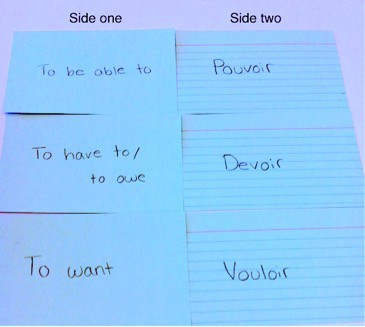
What’s spaced repetition software (SRS)?
Spaced repetition software (SRS) is utilised by nearly all flashcards apps and sites, and incorporates an algorithm that displays flashcards at systematic intervals.
Flashcards and SRS are basically the perfect pairing, just like peas and carrots or milk and cookies. Very, very few people today use paper based flashcards due to the invention of spaced repetition software.
Almost every language learner now refers to flashcards in the context of apps or software.
The most popular and widely used flashcard app on the market for language learners is Anki.
Anki flashcards are super customisable. There are so many functions available on Anki that it can take some getting used to if you’re building your own study decks. There are countless pre-made decks for many different languages too.
PRICE
– Free!*
– *Annoyingly for iPhone users, a one-off payment of $24.99 for the Anki app is required. The desktop version and android app are totally free.
Flashcard learning methods
There are two primary methods of using flashcards for language learning.
Firstly, there are single vocabulary item flashcards. As mentioned above, these flashcards tend to have a word in your target language on one side and a direct translation on the other.
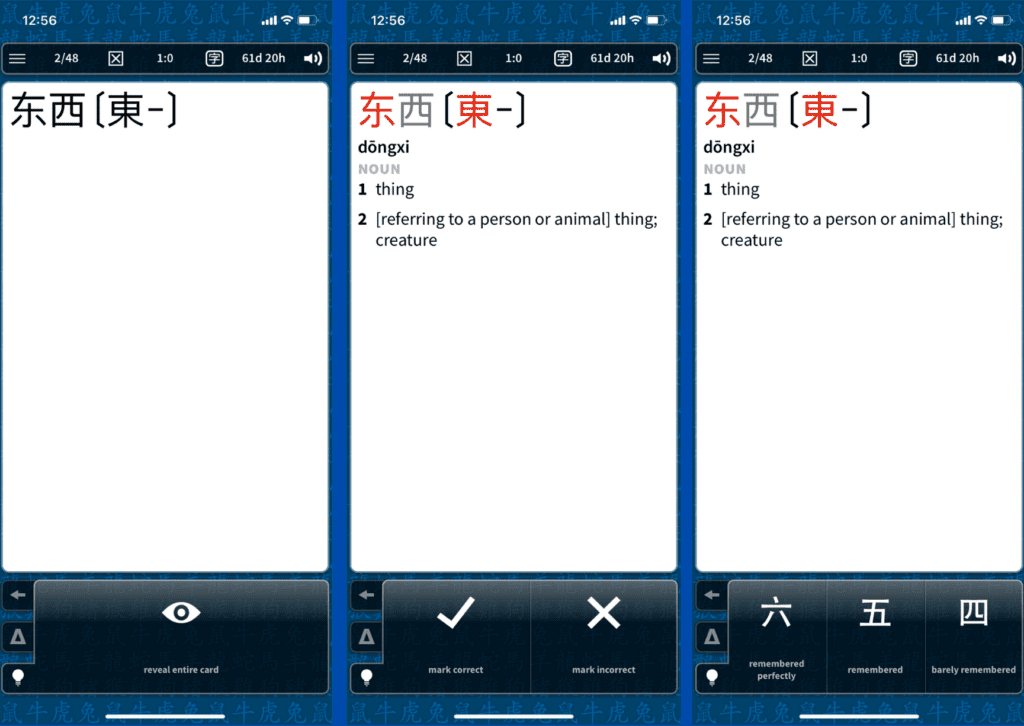
Secondly, we have sentence mining. Sentence mining is the rote memorisation of sentences instead of single words, and is considered by many to be a more effective way to utilise flashcards.
When sentence mining, you’re covering more areas of the language with your flashcards, such as grammar and new vocabulary in the context of a sentence. Many pre-made sentence mining decks included in certain apps contain accompanying audio as well.
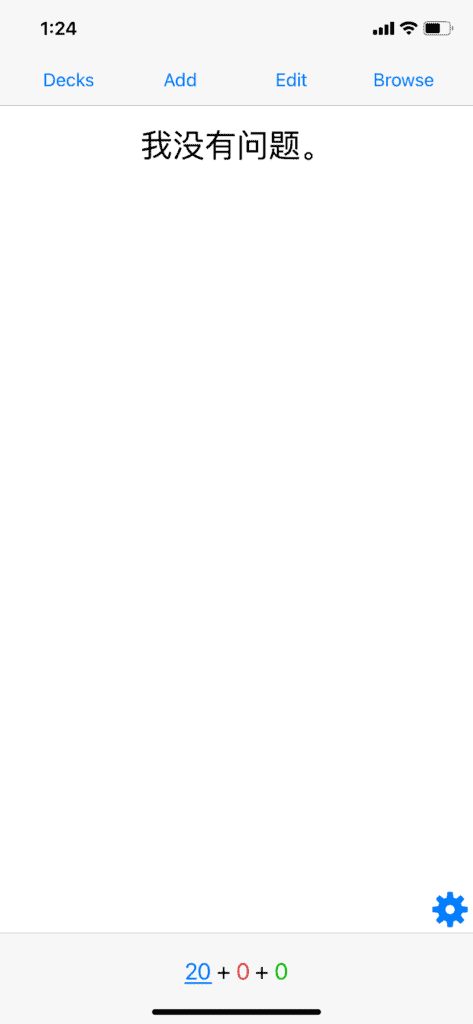
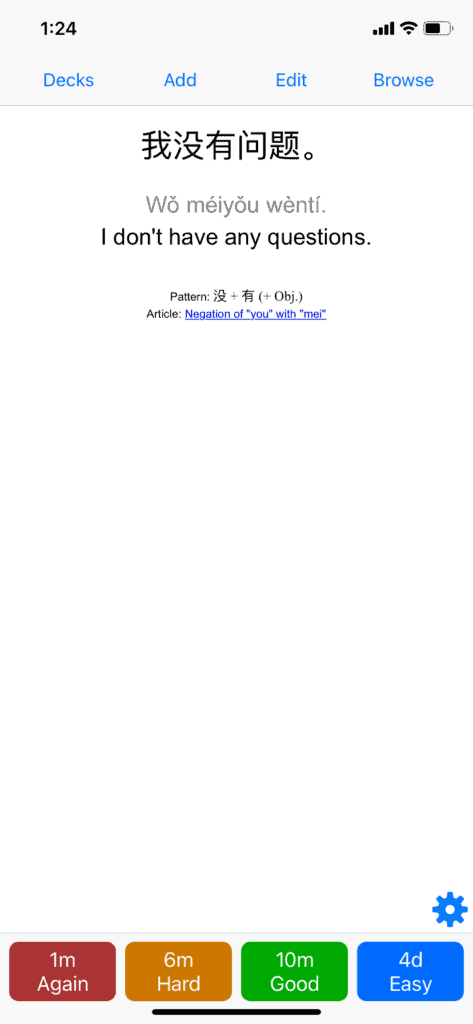
Flashcards: Pros and Cons
Now before I go onto to talk about why flashcards are most definitely NOT the best way to learn languages to a high level, I do want to be fair and say there is a place for them in language learning and they do suit a certain profile of language learner.
However, one must point out that the superficial infographic below doesn’t address the deeper issue of why flashcards shouldn’t be a large part of your language studies.
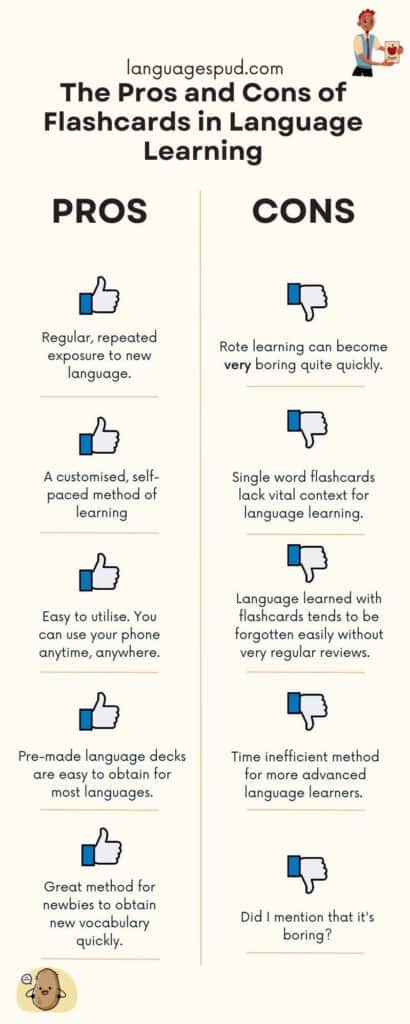
The limitations of flashcards
Let me share with you a little personal story.
When I first began learning Mandarin Chinese, I flew through the HSK (Mandarin Proficiency Test) word lists as fast as I could with the firm belief I was on a fast track to fluency in Mandarin. I even managed to memorise nearly all of the HSK 5 word list (2500 words) in a fairly short space of time.
I thought I was a genius.
“Ah, all of these words I’ve learned! I’m basically Rain Man!”
As I gave myself a big pat on the back… I couldn’t help realising I was still unable to have a conversation in Mandarin Chinese.
All I’d actually achieved by learning single vocabulary items through flashcard apps as my primary study method, was the fairly weak memorisation of a long list of unrelated words.
I had a whole host of other problems, too:
- I couldn’t understand audio that featured my ‘learned’ words.
- I forgot ‘learned’ words fairly quickly if I didn’t do lengthy daily review sessions on my flashcard apps.
- I couldn’t understand texts which featured words I’d ‘learned’ because I hadn’t learned the words in context.
- I couldn’t use ‘learned’ words in conversations because I either didn’t know the relevant context in which to use them, or they weren’t that well cemented into my lexicon.
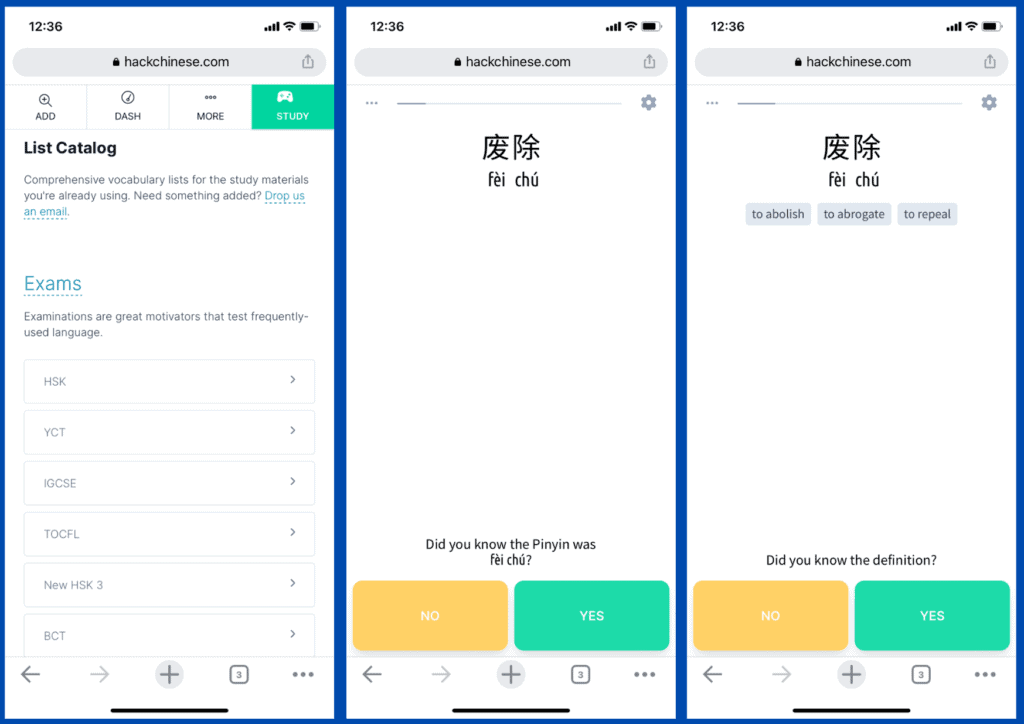
After some time on Reddit and speaking to advanced learners of Mandarin, I realised I wasn’t the only person who had this problem.
Basically, as you reach a high beginner/intermediate level in a language and you’ve spent time experimenting with other study methods, you’re going to realise that single word flashcards are NOT the most efficient use of your study time.
Some of you didn’t want to read that, did you? At the time, I didn’t want to hear/read it, either.
“But whipping out my phone to go through some flashcards every day is so easy and comforting and habitual and means I don’t have to exert mental effort. Don’t make me break my habits that aren’t helping me progress!!”
– Most struggling language learners who can’t face facts about flashcards
When should I use single word flashcards?
Single word flashcards are a useful tool for total beginners to learn the absolute basics. Why? Because as a complete newbie, you have literally no knowledge of the language yet.
It’s all well and good people telling you to watch TV shows, read books, or ‘just go out and talk to people’ (seriously this is the WORST advice for newbies), but if you don’t know anything, you need to learn the bare bones before you get to the meat of language learning, which is a variation of extensive reading and listening activities.
Your goal is to arrive at a point where you can read and listen to basic texts and scripts as quickly as possible.
Single word flashcards can get you to that point, but as you progress you will start to realise how they simply just don’t cut it anymore.
What about sentence mining?
With the sentence mining method there a few advantages over single word flashcards, as mentioned previously.
- Added context for new vocabulary.
- Repeated exposure to grammar and sentence patterns.
- More freedom to tailor your study materials i.e. learn sentences from movies, tv shows, etc. as opposed to studying pre-made word lists from exams, textbooks, etc.
I’ve personally found sentence mining to be more effective than single word flashcards when it comes to remembering new vocabulary.
However, the same principle still applies to sentence mining after a while.
I’m going to repeat myself here because I think this is the most important point of this article: the rote memorisation of language isn’t that affective at taking you to an advanced level of said language.
Ask learners who have reached an advance level of a language how frequently they use flashcards. I’m willing to bet none of them use flashcards regularly, if at all.
Sentence mining is more effective than studying single word flashcards, but we can still do better.
Alternative language memorisation technique
For most of us, remembering as much of the language as quickly as we can is a primary goal for language learning. After all, we’re not here forever, and we’d like to actually use our target language for something vaguely useful at some point.
I suppose that’s why SRS and flashcards were invented. To go faster, right? And they are effective in the beginning. As a newbie, using SRS flashcards will definitely help you remember language quicker than reading the dictionary like they did in the old days.
However, if you’re struggling to remember new language, I promise you there is a better strategy out there.
It’s called…
Shadowing
I was fairly late to the game with shadowing, but I can tell you that my progress in Mandarin Chinese has exploded this year due to adopting it as my primary study method.
Don’t just take my word for it, either. Two of the best foreign speakers of Mandarin on YouTube (Lele Farley and Laoma Chris) have both spoken about how effective shadowing has been in getting them to where they are today.
How to ‘shadow’
Shadowing is pretty simple, and is the act of speaking along (or as close you can) to audio in your target language.
I guarantee that after a few months of doing the following, you’ll see exactly why shadowing is so damned effective.
- Choose some audio – the more you’re interested in your learning content, the better. I’ve used textbook audio, podcasts, and interviews from YouTube previously. Try to keep your content under 15 minutes long – if it’s too long then there’ll be too much new language to remember.
- Slow it down – shadowing is very difficult for newbies, especially if you’re trying it in real time. Take the audio you’ve got and use an app where you can slow it down to about 50% speed. I use AudioStretch.
- Shadow/parrot/mimic – speak along with your audio (with an inevitable short delay), or as close as you can get to it. Mimic the tones, pronunciation, enunciation, pitch, emotion, etc. as best as you can.
- Repeat – do this as many times as you can handle with the same audio for an entire week. Repetition is key. It might sound boring as hell to some of you, but that’s why you need to be interested in your learning content. You have to really want to know everything.
- Absorb – at the end of the week, you will have shadowed the same bit of audio dozens of times. Every single bit of vocabulary, grammar, and pronunciation from said audio will now be etched into your memory like a bad acid trip. You couldn’t forget what you’ve learned even you wanted to.
- Repeeeeeat – find a new bit of audio and go again. Do this for a year. If you haven’t vastly improved your language skills by the end of the year, I will let you punch me in the face.
The benefits of shadowing
- Vocabulary retention – absolutely astounding how much I’m able to recall as a result of shadowing. Seriously. I remember so much more long after I’ve moved onto new audio.
- Accent – this is a major one for me. Mimicking and bringing out your inner impressionist is excellent for language learning, and those who shadow regularly tend to have much better accents than those who don’t.
- Language spillover – When you spend a week shadowing a piece of dialogue, you’re not only learning and remembering a few pieces of vocabulary. You’re learning grammar, structure, pacing, nuance, and a whole host of other aspects of your target language that you can use for output (speaking and writing).
- Learning efficiency – when shadowing, you’re working on many aspects of the language at the same time. You’re intensely listening, you’re speaking, you’re so intensely engaged with the language that your brain doesn’t have the option to switch off. Flashcards can be looked at while you’re half asleep. This isn’t possible when shadowing.
Summary
SRS flashcards are a widely adopted tool for language learners, but their efficacy for reaching a high level of a language leave a lot to be desired.
Many learners like flashcards because they think they’re basically the fastest way to learn new words. In the beginning, this might be the case. But before long, you’ll see their effects start to wane, and you’ll be looking for a new method to keep learning new language as efficiently as possible.
Once you’re able to listen and read basic texts, start shadowing.
Of course, shadowing isn’t the only thing you should be doing in order to learn a language. Extensive comprehensible input is essential and should be adopted as part of your language learning strategy.
I don’t think flashcards are completely useless, and they are a useful tool for those in the following situations:
- Total newbie learners who need to acquire basic vocabulary quickly so they can understand basic texts and audio.
- More advanced students who want to review newly learned vocabulary.
- Sentence mining can also be effective for those at a high beginner/lower intermediate level learner who wants to upgrade from single vocabulary flashcards.
Further reading
- 100+ MANDARIN LEARNING RESOURCES: THE FASTEST WAY TO FLUENCY
- Learn Chinese for FREE | Free Apps, Sites, Courses, and Media
- The 21 Best Apps For Learning Mandarin Chinese
- THE ULTIMATE GUIDE TO LEARNING CHINESE IN CHINA
- 14 REASONS WHY YOU SHOULD LEARN MANDARIN CHINESE
- STUDYING MANDARIN AT A UNIVERSITY IN CHINA: WHAT YOU NEED TO KNOW
- 100+ PODCASTS FOR LEARNING CHINESE | BEGINNER TO ADVANCED MATERIAL
- 101 TV SHOWS FOR CHINESE LEARNERS
